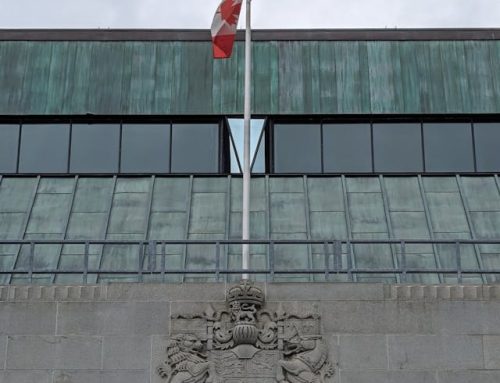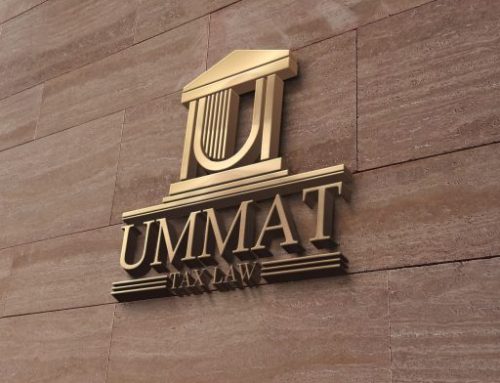The Crown Has the Burden to Prove Gross Negligence Penalties
Kim v. Canada
Summary
In the majority of tax appeals, the taxpayer has the burden of proving the assessments are incorrect. But this case is a reminder that the Crown, and not the taxpayer, has the burden of proving the correct imposition of gross negligence penalties.
Background
The appellant was employed by Bombardier Inc. and reported employment income on his T1’s. He also claimed business losses of $256,375 in 2009 and $114,848 in 2010, and those losses were based on information that he received from DSC Lifestyle Services. This organization was associated with the tax preparer known as “Fiscal Arbitrators”. The claimed business losses were based on the appellant’s “… unrealistic notion that his employment income was linked to an artificial legal entity and that it was possible to distinguish between this artificial legal entity and a human being. He could therefore have his artificial entity pay his real entity expenses which resulted in the losses that he had claimed.”[1] The Minister denied the losses and imposed gross negligence penalties under subsection 163(2) of the Act.
At the Tax Court, Justice Smith found that the business income and expenses were “entirely fictitious” and “simply fabricated”. The assessment of the penalties was also upheld.
Decision & Analysis
The main issue was whether there had been any procedural unfairness at the Tax Court hearing. The issue relates to the Tax Court’s statements indicating that the taxpayer was responsible for disproving the facts the Minister relied on in assessing the gross negligence penalty (which is incorrect).
Section 163(3) makes clear that the Minister bears the onus of proof in establishing the facts that would justify the imposition of a penalty under subsection 163(2) of the Act. This is contrary to the usual onus, which is on the taxpayer. In most tax appeals, the Minister will list a series of assumptions that were made in determining the tax liability of the appellant. It will be the taxpayer’s onus to demolish those assumptions to succeed in the appeal.
Because the burden of proving the facts justifying the assessment of the penalty is on the Minister, the Minister cannot simply rely on allegations of facts (assumptions) set out in the reply to establish those facts. The Minister must introduce evidence to establish these facts.
The requisite evidence could be introduced through the testimony of the taxpayer – either as a witness called by the Crown or through the cross-examination of the taxpayer by the Crown.
Early in the Tax Court proceeding, the Tax Court Judge indicated to the appellant that it was his burden to disprove the assumptions in the reply relating to the penalties. Legally speaking, that is incorrect and the Federal Court of Appeal found that the Tax Court Judge did indeed err when he told the appellant that the onus was on him to lead evidence to refute the alleged facts as set out by the Minister in the replies.[2]
Justice Webb went on to state that, despite the error, the appellant would only be entitled to a new hearing if the outcome of the appeal was not inevitable.
In Mercure v Canada, 2013 FCA 102, Pelletier J.A. stated that:
[21] It remains to be decided to what remedy Mercure is entitled. As a general rule, in the case of a breach of procedural fairness, the court does not consider whether the breach had an effect on the outcome of the dispute. The mere fact that a breach of procedural fairness occurred is enough to warrant a new trial. This general rule has only one exception, which is the case in which the question before the court has an inevitable answer: see Mobil Oil Canada Ltd. v. Canada-Newfoundland Offshore Petroleum Board, [1994] 1 S.C.R. 202 at paras. 50-54.[3]
[emphasis added]
Justice Webb found that there was sufficient evidence introduced through the witnesses – including the appellant – to justify the assessment of the penalties. As such, Justice Webb found that the outcome was inevitable. It is likely that the credibility of the appellant’s main witness, Lawrence Watts, played an important part in the Judge’s findings regarding the inevitable outcome. Watts confirmed on cross that he been convicted of fraud in relation to his involvement with Fiscal Arbitrators.
Key Takeaway
It is trite law that the Minister has the burden of proving the correctness of the imposition of gross negligence penalties. As a practical matter, it has always been somewhat of a challenge to determine the ordering of the evidence in cases involving the gross negligence penalty. Justice Webb succinctly describes the rules and the typical order in which the evidence would be presented in a penalty case at paragraphs 26-30.
Call Ummat Tax Law to dispute assessed gross negligence penalties.
[1] Kim v. Canada 2019 FCA 210 (“Kim”), at para. 3.
[2] While the Tax Court judge did acknowledge in his written reasons that the onus was on the Minister to establish the facts that would justify the imposition of the penalties, this was well after the Tax Court hearing was concluded.
[3] Kim, supra note 1, at para. 20.




